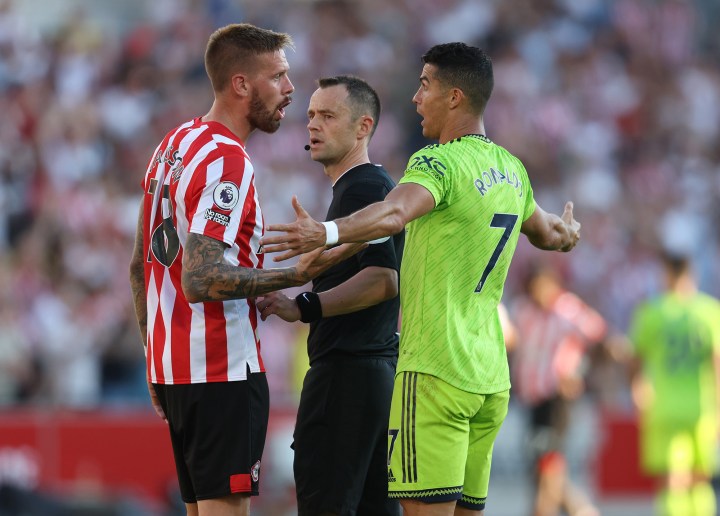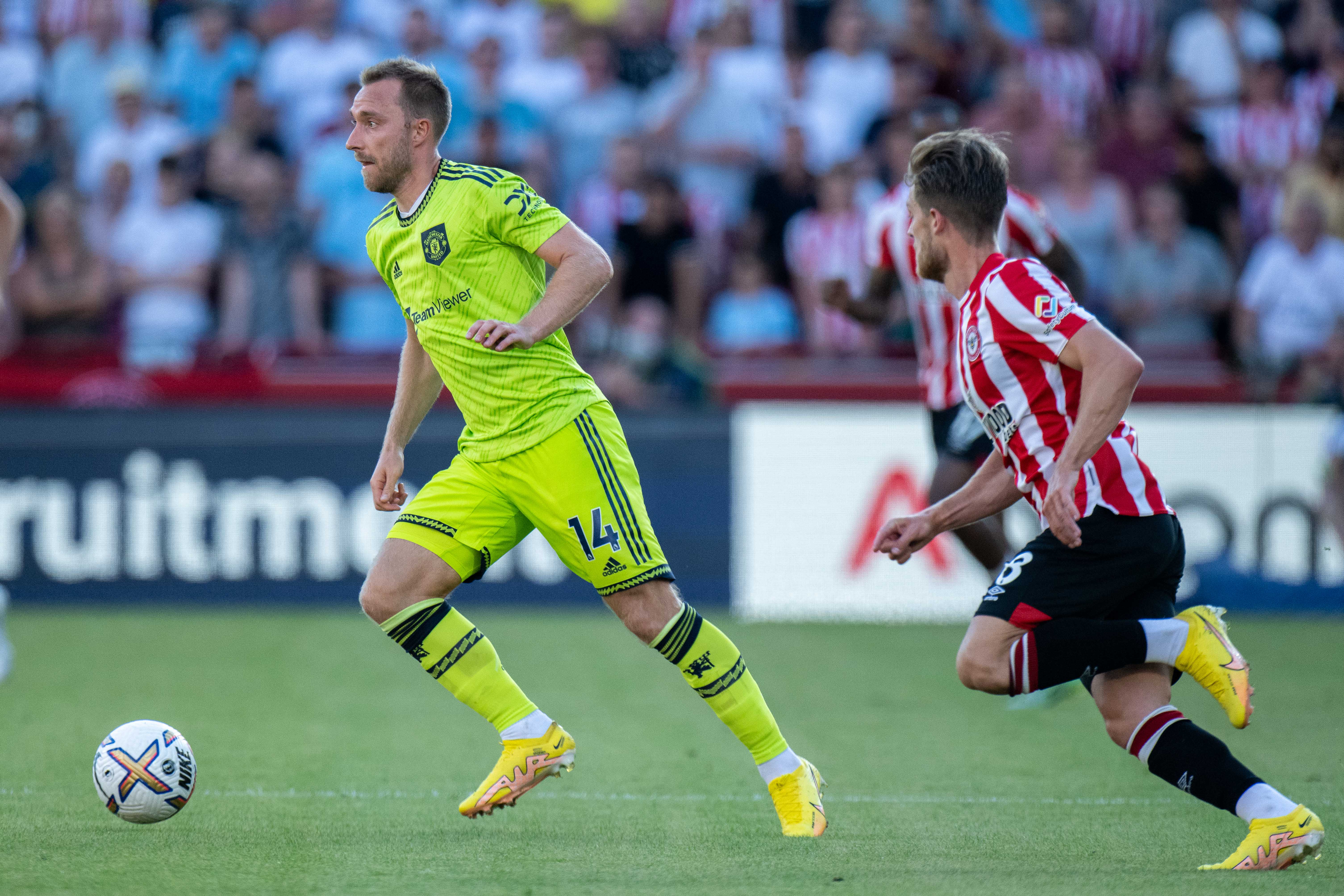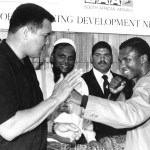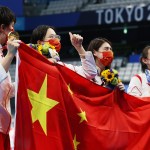THE CONVERSATION
#EmptyOldTrafford: Why Manchester United’s bid to recruit global fans may be backfiring

Manchester United’s poor start to a new Premier League campaign has angered fans at home and around the world.
After years of underachievement on the field, Manchester United was supposed to bounce back this Premier League season.
But an opening game home defeat to Brighton and Hove Albion, followed by an embarrassing capitulation away at Brentford, has left United bottom of the Premier League, with zero points. This has prompted former club captain Gary Neville to assert that the club has now reached rock bottom.
In protest, fans have taken to social media to call for a boycott of United’s next game – Monday’s home clash against historic rivals, Liverpool.
Organised around the hashtag #EmptyOldTrafford, many posts take aim at the club’s owners, the Glazer family, whom critics accuse of prioritising the club’s commercial activity and global reach over performance on the pitch.
As part of a longitudinal research project monitoring football clubs and social media, we sampled 21,610 tweets featuring the #EmptyOldTrafford hashtag between Saturday, 13 August, and Monday, 15 August 2022.
What we found was striking. It appears that a majority of Twitter users encouraging fans not to attend the Liverpool game are based outside the UK and may never even have attended a game at Old Trafford.
This would suggest that the club’s strategy of recruiting fans worldwide for commercial reasons may be backfiring. In building a huge following across the world, United may also have inadvertently cultivated a community of global social media activists intent on influencing how the club is run.
United’s commercial success
Fans, followers and pundits frequently lay the blame for United’s descent from greatness at its owners, the Glazers, a family of US sports entrepreneurs who took control of the club in 2005.
The Glazers’ focus on the commercial development of United has seen the club constantly feature towards the top of financial performance and brand valuation league tables. In 2012, it generated £396-million (R8-billion) in revenues, which reached a prepandemic peak of £663-million in 2019.
Such revenues are also a result of the club’s pursuit of overseas fan engagement. This appears to have been very successful. In one study, it was estimated that United has 1.1 billion fans and followers worldwide. In another study, it was identified that the Manchester club has upwards of 170 million followers across all social media platforms. That’s enough to fill Old Trafford 2,292 times.

Christian Eriksen of Manchester United during the Premier League match between Brentford FC and Manchester United at Brentford Community Stadium on 13 August 2022 in Brentford, United Kingdom. (Photo: Sebastian Frej / MB Media / Getty Images)
Fan frustration
In May 2020, United fans’ frustration about poor results manifested itself in a pitch protest against the Glazers, leading to a home game against Liverpool being postponed. Just last season, fans had also planned mass walkouts during games to express their discontent, but few fans actually left the stadium on these occasions.
This time around, calls for a walkout have been amplified by social media. Our map of accounts using the #EmptyOldTrafford hashtag shows that United fans and followers from a multitude of countries have been calling for people to stay away from the game against Liverpool, including significant clusters in the US, west Africa and India.
Visit Daily Maverick’s home page for more news, analysis and investigations
Four main themes
We themed the tweets according to their content. Some explicitly criticised the owners, while others focused on encouraging loyal fans to join the protest.
Curiously, we noted that of the inflammatory aggressive clusters, the biggest is centred in Nigeria. One reason for this could be that the club has a significant fan base in the west African country, perhaps following its signing-on loan in 2020 of Nigerian international Odion Ighalo.
Another reason could be that Nigerian celebrities including Adekunle Gold, Uche Jombo and Mayorkun have ridiculed Manchester United online.
There is a third explanation. It’s possible that Nigerian troll farms are being specifically engaged to spread the #EmptyOldTrafford hashtag, though by whom and for what purpose is unclear.
What is clear from our work is that the largest number of Twitter accounts involved in the hashtag were only established this year. That’s often a sign that accounts have been created for a specific purpose.
It could be that fans are joining Twitter with the intention of supporting the protest. Alternatively, one might argue that new users are more vehement in expressing their views about United and the Glazers. But if troll farms have helped the #EmptyOldTrafford hashtag trend on Twitter, it suggests there are some worrying new developments on social media that top football clubs must address.
Pressure on the Glazers
Manchester United fans will be aware that ticket revenue accounts for a tiny proportion of the club’s total income. If the #EmptyOldTrafford protest is successful and the stadium is conspicuously empty for the Liverpool game, it may only serve as a passing embarrassment for the club’s owners.
But a football club with global ambitions is subject to global scrutiny and criticism, especially in the age of social media. A one-off stadium protest may not rattle sponsors and commercial partners, but the ongoing discontent of the global audience they’re trying to reach may well do.
Even if the atmosphere at Monday’s fixture is muted, our findings suggest that United’s global fan base has found its voice. It’s that development, rather than events in Manchester, that may ultimately encourage the club’s owners to address United’s decade-long slide to Premier League mediocrity. DM
This article first appeared in www.theconversation.com
Wasim Ahmed is Senior Lecturer in Digital Business, University of Stirling. Alex Fenton is Head of Centre for Professional and Economic Development, University of Chester. Simon Chadwick is Global Professor of Sport/Director of Eurasian Sport, EM Lyon.




















Comments - Please login in order to comment.